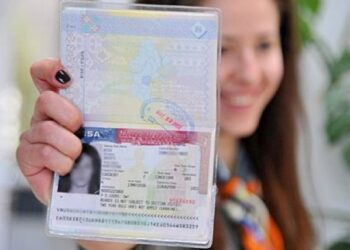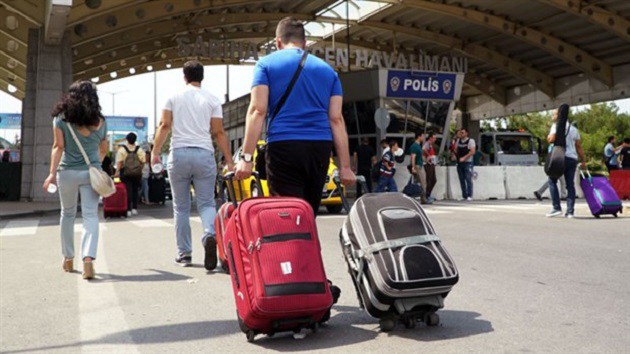Chinese speakers lured by jobs in the booming food delivery sector risk signing up to work that could leave them falling foul of visa rules.
Online job posts are encouraging tourists to work illegally in Australia as food delivery couriers, in some cases promising to help them apply for student visas so they can stay working in the country for longer.
The postings by individuals, written in Chinese and circulated on social media platforms, say those on tourist visas can work delivering food for as little as $700 for a 60-hour week. This equates to less than $12 an hour, well below Australia’s minimum wage of $18 an hour.
“Malaysians can enter Australia with a three-month tourist visa,” reads a translation of an ad purporting to promote jobs with “Sydney’s No 1 Chinese Delivery Platform” HarkHark.
“If you find the job suits you, I can show you how to change it to a student visa.”
International visitors are not permitted to work while in Australia on tourist visas, according to the Department of Home Affairs. Those on student visas are limited to 20 hours work a week.
Some of the Facebook posts, by individuals purportedly recruiting riders for popular Mandarin-based food delivery app EASI as well as HarkHark, included pictures of smiling groups of riders – seemingly taken during training.
HarkHark was yet to respond to questions about its connection to the posts. But an EASI spokeswoman categorically denied the company or its associates were in any way responsible, adding it did only accept riders with work rights – not tourist visa holders.
“We are in shock of the misrepresented information involved,” the EASI spokeswoman said. “We have reported to the relevant authority to remove those ads.”
The Victorian-based Migrant Workers Centre told SBS News it had seen a number of recent ads for gig economy jobs openly encouraging people to come to Australia to work against the conditions on their visas.
“But in more cases what is happening is the low wages and bad conditions in the workplace are forcing migrants to breach their visa conditions if they want to survive,” the centre’s director Matt Kunkel said.
“So we are finding that unscrupulous bosses are really driving these migrants into poverty and in some cases forcing them to be trapped in Australia without a way to get home and facing incarceration in immigration [detention].”
One ad posted on Monday by a user claiming not to be an agent alleged to be “genuinely recruiting” 10 to 15 couriers for HarkHark in Sydney, warning the work is “difficult and dangerous”.
“I am Malaysian.” it stated. “I know Malaysians are hard-working, disciplined and do want to earn money.”
Another posted on Tuesday for EASI, which is known as Sydney Delivery in the NSW capital, states it is not accepting applications from tourists “at the moment”.
An ad posted last month seeking workers in Victoria, where EASI is also known as
Melbourne Delivery, stated “it’s not an illegal job. You [should] have a visa allowing you to work in Australia”.
But it went on: “Malaysians can enter Australia with a tourist visa for three months. You can apply for a visa once you try the job and think it suits you”.
“If you do not think so, you can go back at any time within three months.”
The revelations follow an SBS News investigation that found some delivery riders for
EASI were earning below the minimum wage and working without insurance – prompting the Transport Workers Union to again accuse the industry of exploiting its workforce.
EASI, also known as the Australian Delivery United Group, rejected any suggested mistreatment of workers, saying riders were sub-contractors rather than employees, and were therefore in control of their own working hours and obligations.
The food delivery sector, which typically signs up couriers as independent contractors, has been dogged by allegations that it exploits its workforce, which includes high numbers of temporary visa holders.
In June, the Fair Work Ombudsman launched legal action against Berlin-based Foodora, accusing the company of sham contracting resulting in the underpayment of workers.
The company has gone into voluntary administration, prompting that legal action to be dropped. It is alleged to owe millions in unpaid taxes, but Foodora disputes this.
HarkHark has been approached for comment.





















